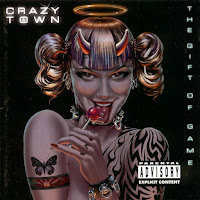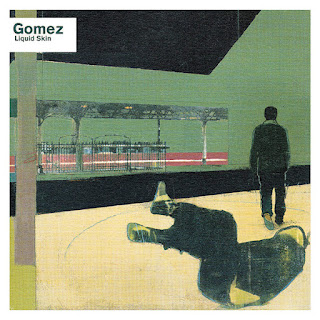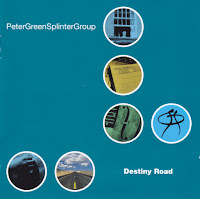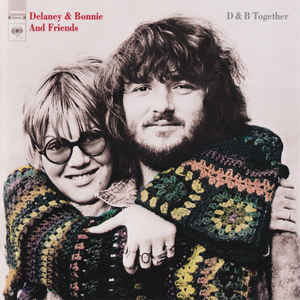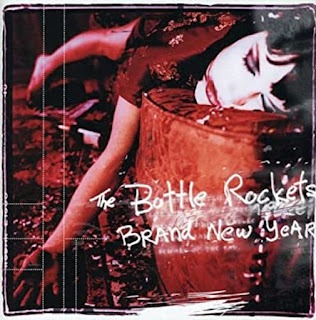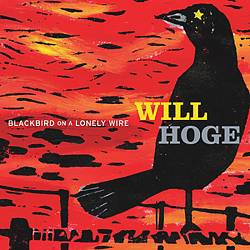Reviews originally published as a “Buzz Kuts” column, Alt.Culture.Guide™, November 1999
BLUE MOUNTAIN
Tales of A Traveler
One of Mississippi’s better-known secrets, Blue Mountain mine a musical vein that combines a lyric-driven folk tradition with a sound that’s part roots rock and part country. Too eclectic for the hardcore alt-country audience, Blue Mountain’s work is hidden away on died-in-the-wool metal label Roadrunner, where the gentle Southern quartet share a roster with bands like Coal Chamber and Soulfly. Sadly ignored by the mainstream music press and seemingly lacking in the “hipness” factor that would ensure them constant street-level zine exposure, Blue Mountain have built an audience entirely on word of mouth. Tales of A Traveler, the band’s third Roadrunner album and their most mature work to date, should go a long way towards stimulating such discussions.
A refreshingly honest and entertaining work, the members of Blue Mountain seem to rejoice in the sheer act of making music, and it shows. Songs such as “Comic Book Kid,” a poignant, universal tale of childhood, or the hard rocking “Room 829” are rife with imagery, skillfully written by founders Cary Hudson and Laurie Stirratt. The pop-country track “I Don’t Wanna Say Goodnight” trumps anything produced by Nashville’s Music Row this year while the swamp-rock of “My Wicked Ways” features some deliciously wicked six-string work. Produced by the band with help from ex-Georgia Satellite Dan Baird, Tales of A Traveler is one of the year’s best releases, an album of incredible intelligence and depth which utilizes a diverse musical vocabulary to drive its songs home. Blue Mountain would certainly appeal to fans of bands like Wilco or Son Volt, so what are ya’ll waiting for? Pick up on Tales of A Traveler or forever suffer in musical ignorance. Just don’t say that I didn’t tell ya so… (Roadrunner Records)
CRAZY TOWN
The Gift of Game
Unlike most rap/metal hybrids, Crazy Town features not one but two authentic rap “DJs” in Shifty Shellshock and Epic Mazur, two quite different rap stylists who nonetheless play off each other’s strengths with great effectiveness. In a genre in which everybody from Kid Rock to Limp Bizkit is trying to bring down the motherfuckin’ roof, Crazy Town actually accomplishes it with The Gift of Game. “Toxic,” the disc’s first single, is a crunchy little slice o’ white light/white heat with deceptively smooth vocals lulling the listener into a false calm before assaulting the ears with a megavolt assault of blasting guitars. Much of the rest of The Gift of Game follows the same blueprint, with impressive vocal gymnastics matched by sheer sonic overkill.
“Darkside” offers a really wicked circular riff, electronically-altered vocals and a powerful beat to split your skull while “Hollywood Babylon,” with guest vocalist toastmaster Mad Lion, is the meanest vision of the concrete jungle since Guns ’N’ Roses’ “Welcome To The Jungle.” The Crazy Town posse teams up with KRS-One for “B-Boy 2000,” a chaotic romp through a fantasy of futuristic hip-hop. The Gift Of Game is an altogether crazed collection of rapid-fire rhymes, molten riffs and muscular rhythms, the aural equivalent of slamming your car into a brick wall at 100 mph. Note: this review of The Gift Of Game was done with an advance copy of the CD. The regular edition includes a cut titled “www.crazytown.com” that was included after the band clashed with Sony over the ownership of the Crazy Town web address. Evidently Sony refused to print the address on the CD materials, so the band added a song with the web address as the title. We haven’t heard the song but we like the stand it takes. (Columbia Records)
GOMEZ
Liquid Skin
Unlike a lot of the current crop of Britpop wonders, who tend to look towards the ancient mod vs. rocker cultural clash for their musical inspiration, Gomez draws upon myriad of influences, both British and American. If Gomez were from, say, Albuquerque NM, they’d be lumped in with jam bands like Phish or Blues Traveler. Since they hail from across the pond, however, critics have been falling all over themselves to say how “American” the songs on Liquid Skin sound. These ears don’t recognize this material as sounding American as much as not sounding British. For their second album, Gomez has continued to create, thread by thread, the enormous tapestry of sound that they began weaving with their debut. Liquid Skin is a very textured album, a multi-layered delight that’s hard to pin down to any one style or category.
There are immense ambient passages of great delicacy, such as the instrumental break within “Revolutionary Kind,” as well as dreamy, mesmerizing tracks like “Blue Moon Rising” or “Rosalita,” with muted instrumentation and almost whispered vocals. “Rhythm & Blues Alibi” offers passionate vocals accompanied by tasteful acoustic guitar, sounding as close to Britpop as Gomez gets; “Devil Will Ride” mixes electronically-altered vocals with a folkish instrumentation to create, perhaps, a new genre: “folktronica”! Exceeding expectations and defying classifications, Gomez have delivered a timeless work in Liquid Skin, a cohesive collection that stitches the influences of musical history and style into a seamless garment that is as comfortable as it is familiar. (Virgin Records)
PETER GREEN SPLINTER GROUP
Destiny Road
During his stint as one of the founding fathers of British blues, guitarist Peter Green fronted a late ‘60s Fleetwood Mac line-up that was as powerful an electric blues band as any outfit you’d find stateside. A guitarist of some skill and accuracy, Green – “Greenie” to his friends – was still blazing new musical trails and setting audiences on their ears when Fleetwood Mac’s growing fame took its toll. Damaged by the rock ‘n’ roll lifestyle, Green fled the band around 1970, trading in his six-string first for a religious cult and later for personal solitude. After too long a time out of the spotlight, Green has begun taking a few tentative steps back into music during the late ‘90s. Destiny Road, his recent work with the Splinter Group, is a fine indication that Green is getting his music back on solid ground.
A wonderful collection of classic and original blues, Destiny Road showcases the talents of a more mature Peter Green. Along with fellow guitarist Nigel Watson, Green has put together in Splinter Group a dynamic blues band that performs with great subtlety and grace. Whether kicking out covers like Elmore James’ classic “Madison Blues” or new material like Green’s “Tribal Dance” (eerily reminiscent of Mac’s “Oh Well”) the band delivers the real goods. The difference between Splinter Group and early Fleetwood Mac is similar to that between a fine wine and a shot of whiskey – they’ll both knock you on your ass, the wine just takes longer. Whereas a younger Greenie would blow you away with speed and power, the older Green does so with style and assurance. It’s an impressive transformation that is illustrated by Destiny Road, the album a rock-solid indication that Peter Green has returned. (Snapper Music)


